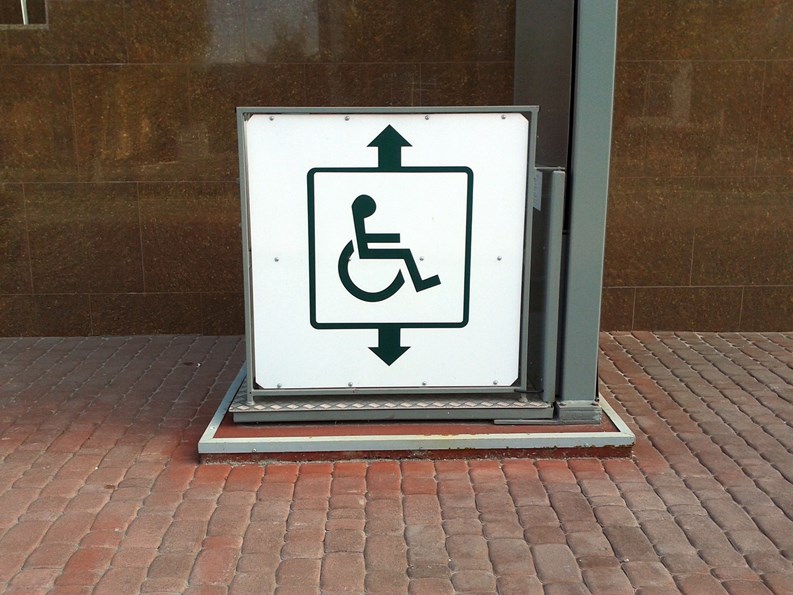First in a series. To read part two, click here.
The rights of people living with physical disabilities have always been closely entwined with the issue of housing discrimination. In some instances, cases involving discrimination and the disabled have appeared on the news: Four years ago, the Florida attorney general’s office sued an association in East Naples on the behalf of a paralyzed man whose wheelchair accessible truck was parked in the driveway. Last year, the U.S. Department of Housing and Development accused a co-op in White Plains of discrimination for not allowing an exception in its procedures for a disabled person to purchase a unit.
New York City has some of the toughest housing discrimination ordinances in the nation, according to Deborah B. Koplovitz, an attorney with Anderson Kill, a Manhattan-based law firm that represents many co-op and condominium buildings. Koplovitz spoke about housing discrimination back in June at an event hosted by her firm, and The Cooperator spoke with her to discuss some of the unique issues facing owners, associations and corporations today.
The Laws
Koplovitz explains and outlines some fundamental disabled accessibility provisions as follows: “A board is required to make or permit ‘reasonable accommodations’ to the rules and regulations and to the structure of the building in order to make the housing handicapped accessible," she says. "And a board is also required to refrain from retaliating against a cooperator who has made a request or a complaint about certain treatment.”
The governing laws are as follows with respects to federal, state and city:
Federal: Under federal law, pursuant to 42 USCS § 3604 (2) (A) and (3)(B) it is unlawful to “discriminate against any person in the terms, conditions, or privileges of sale or rental of a dwelling, or in the provision of services or facilities in connection with such dwelling, because of a handicap of that person”, it being specifically proscribed that discrimination under said section “includes a refusal to make reasonable accommodations in rules, policies, practices, or services, when such accommodations may be necessary to afford such person equal opportunity to use and enjoy a dwelling”.
State: New York’s Executive Law § 296, “prohibits a refusal by a housing provider to make reasonable accommodations in [its] rules, policies, practices, or services, when such accommodations may be necessary to afford a person with a disability an equal opportunity to use and enjoy a dwelling.”
City: Under the New York City Administrative Code § 8-107(15) there is a requirement to make, “reasonable accommodation to the needs of persons with disabilities. Except as provided in paragraph (b), any person prohibited by the provisions of this section from discriminating on the basis of disability shall make reasonable accommodation to enable a person with a disability to satisfy the essential requisites of a job or enjoy the right or rights in question provided that the disability is known or should have been known by the covered entity.”
Practical Application
In real, day-to-day city life, where many apartment buildings were built decades ago, condo associations and co-op corporations must balance the requirements of the law and the reality of what can be done to satisfy those requirements. Koplovitz explains that a co-op board has an obligation to treat disabled people equally and not to discriminate against them in the terms, conditions, and privileges of their housing.
“A board is required to make or permit ‘reasonable accommodations’ to the rules and regulations and to the structure of the building,” she says, in order to make the housing handicapped accessible. A board is also required to refrain from retaliating against a cooperator who has made a request or a complaint about certain treatment.”
The question arises as to what a co-op or condo is not obligated to do under these ordinances. Koplovitz explains that depending on the modification that is requested, the type of building, and the law which is being applied, a board may or may not have to pay for a given alteration.
“Under the New York City Administrative law, a board is required to pay for the reasonable accommodation, whether the work is being done to the interior of the apartment or the common areas,” she says. “Under State law, the housing provider only has to pay for retrofits in the common areas. Under Federal law, the board does not have to pay. A board is not required to consent to unreasonable accommodations, to accommodations which cause an undue burden, or which are structurally infeasible, or under federal law, which would fundamentally alter the nature of the housing."
Because of the vast differences in the legal framework, Koplovitz advises boards to check with their attorney before responding to any request for accommodation.
Current Resident vs. New Purchaser
But what about prospective purchasers? If a building is not sufficiently accessible and a disabled apartment seeker who otherwise meets the financial requirements wants to buy in, what is the board obligated to do? Koplovitz recommends that boards take the steps necessary to make the structure accessible, and in particular, to make the front entrance accessible, to the extent that is possible under building codes.
“If a building is landmarked, particular care must be taken,” she says. “I cannot really imagine that an applicant for housing who is in a wheelchair would want to purchase an apartment that is not already accessible, because it will take some time to retrofit a building. A court will examine the actual finances of a corporation or condo association to see if the accommodation poses an undue burden.”
Koplovitz adds that since the costs of many lifts or ramps are not prohibitively high, it's unlikely that installing one would bankrupt a building, or for a co-op or condo to show that they simply cannot assess the unit owners/shareholders to cover the costs.
“Case law does permit a building to claim that an accommodation poses an undue burden to the housing provider,” Koplovitz says, “so technically, yes, that claim can be made, although any building claiming that needs to be prepared with extremely strong facts to support that claim.”
Today’s fair housing and anti-discrimination laws extend to all types of specific situations. Next week we will discuss mental health and service animals.
AJ Sidransky is a published novelist and staff writer at The Cooperator.







Leave a Comment